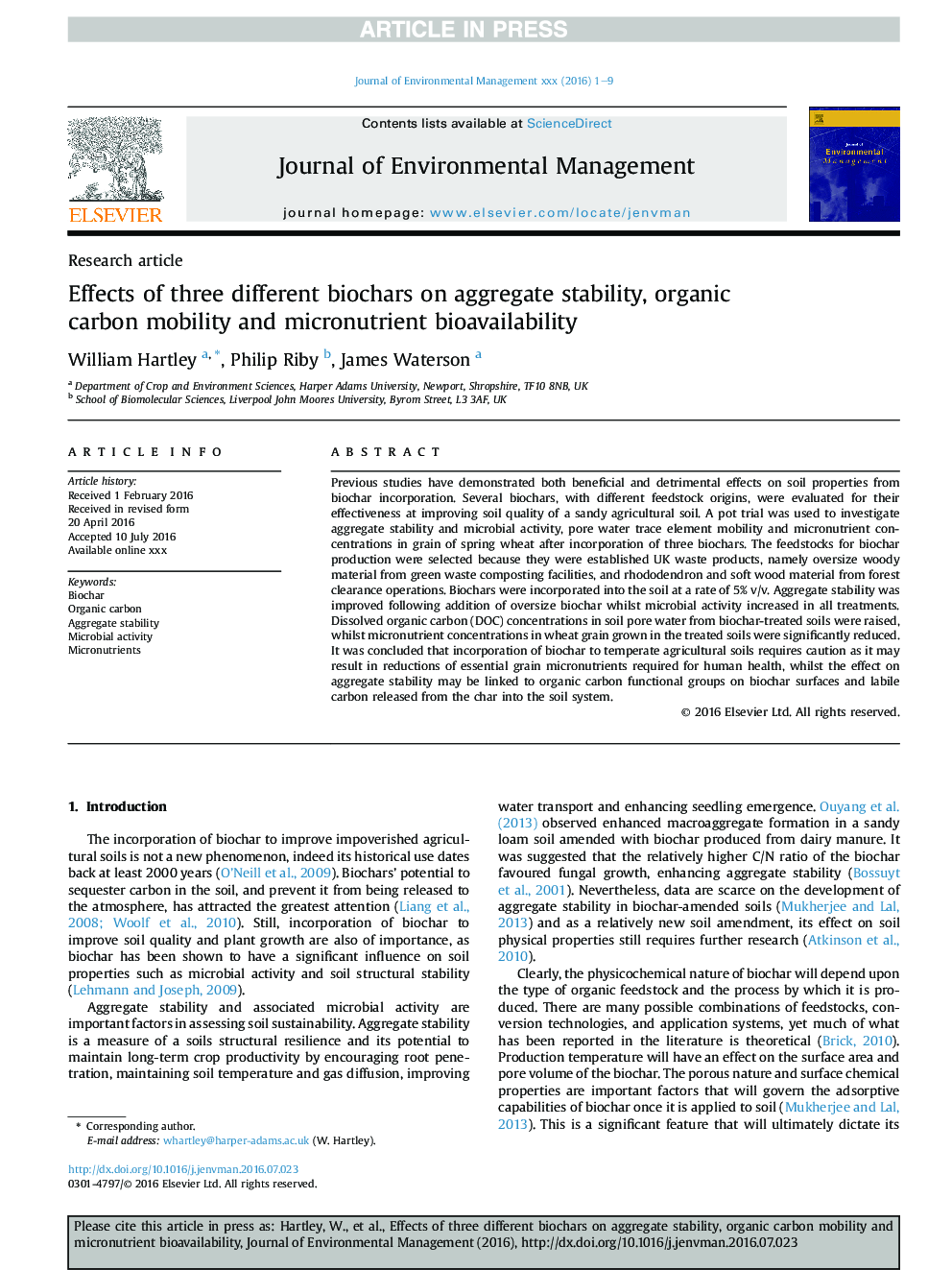| Article ID | Journal | Published Year | Pages | File Type |
|---|---|---|---|---|
| 7479895 | Journal of Environmental Management | 2016 | 9 Pages |
Abstract
Previous studies have demonstrated both beneficial and detrimental effects on soil properties from biochar incorporation. Several biochars, with different feedstock origins, were evaluated for their effectiveness at improving soil quality of a sandy agricultural soil. A pot trial was used to investigate aggregate stability and microbial activity, pore water trace element mobility and micronutrient concentrations in grain of spring wheat after incorporation of three biochars. The feedstocks for biochar production were selected because they were established UK waste products, namely oversize woody material from green waste composting facilities, and rhododendron and soft wood material from forest clearance operations. Biochars were incorporated into the soil at a rate of 5% v/v. Aggregate stability was improved following addition of oversize biochar whilst microbial activity increased in all treatments. Dissolved organic carbon (DOC) concentrations in soil pore water from biochar-treated soils were raised, whilst micronutrient concentrations in wheat grain grown in the treated soils were significantly reduced. It was concluded that incorporation of biochar to temperate agricultural soils requires caution as it may result in reductions of essential grain micronutrients required for human health, whilst the effect on aggregate stability may be linked to organic carbon functional groups on biochar surfaces and labile carbon released from the char into the soil system.
Related Topics
Physical Sciences and Engineering
Energy
Renewable Energy, Sustainability and the Environment
Authors
William Hartley, Philip Riby, James Waterson,
